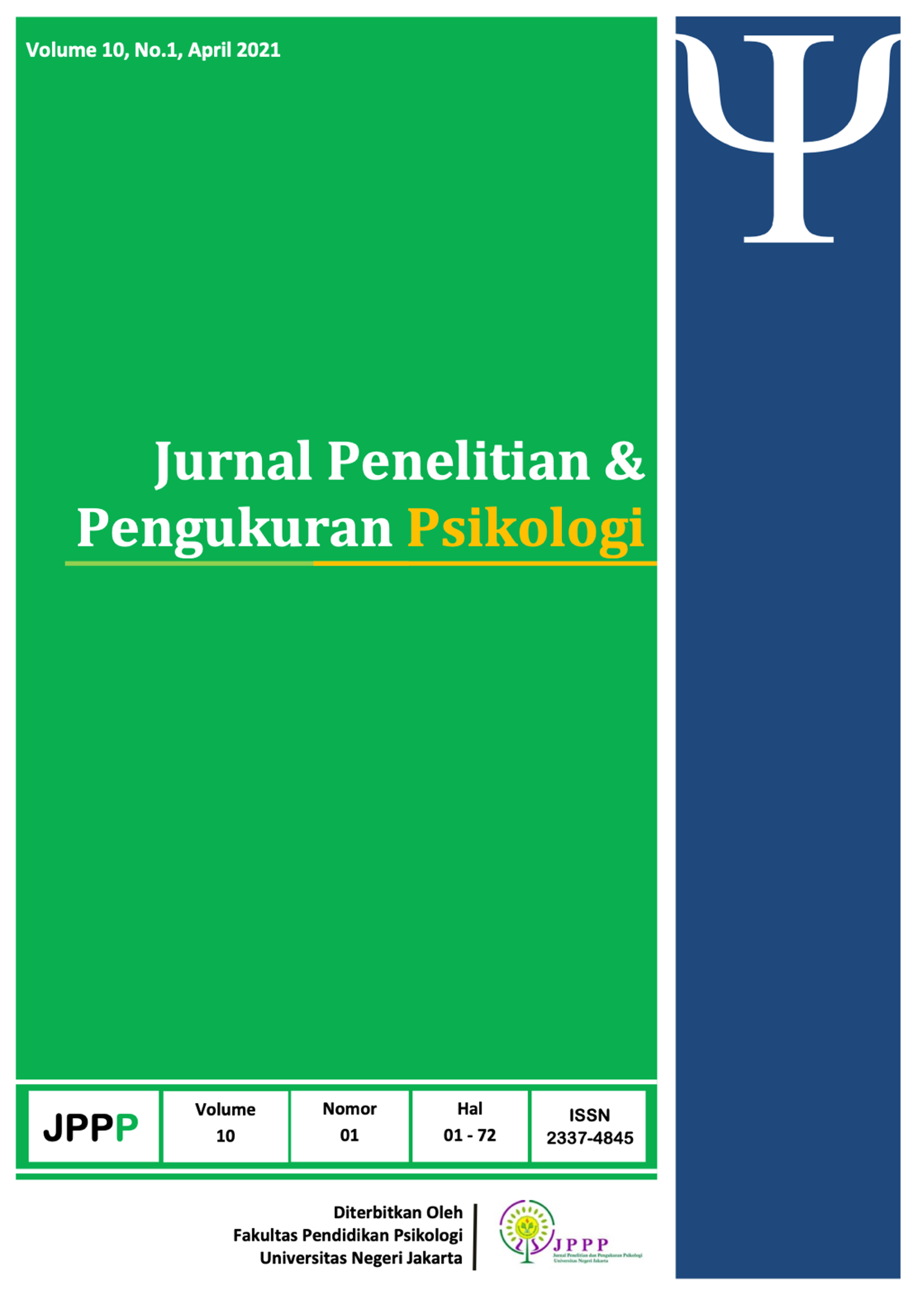Kesejahteraan Psikologis, Stres, dan Regulasi Emosi pada Mahasiswa Baru selama Pandemi COVID-19
DOI:
https://doi.org/10.21009/JPPP.101.07Keywords:
COVID-19, psychological well-being, stress, emotion regulation, first-year studentAbstract
Stress is one of psychological reactions that has been experienced by college students during the COVID-19 pandemic. The level of stress can be affecting their psychological well-being. Previous studies show there is a significant relationship between emotional regulation and stress, also psychological well-being. A high level of stress will be declining psychological well-being. On the other hand, emotional regulation has proven to be reducing stress level as well as maintaining the condition of psychological well-being. Emotional regulation strategies are defined as the way individuals influence, feel, and express their emotions. The strategies divided into two which are cognitive reappraisal and expressive suppression. This study aims to examine the effects of expressive suppression and cognitive reappraisal regulatory strategies as a moderator between stres and psychological well-being. A total of 119 first-year students of Universitas Indonesia in 2020 were involved in this research. Stres was measured using the Perceived Stress Scale-10 for COVID-19 (PSS-10-C); emotion regulation were measured using the Emotion Regulation Questionnaire (ERQ); and psychological well-being was measured using Ryff's Scales of Psychological Well-being (RPWB). The results showed that (1) stress can be a significant predictor of psychological well-being; (2) expressive suppression as an emotional regulatory strategy is significant in strengthening the negative relationship between stress and psychological well-being; (3) on the other side, cognitive reappraisal strategy is significant in weakening the negative relationship between stress and psychological well-being.







